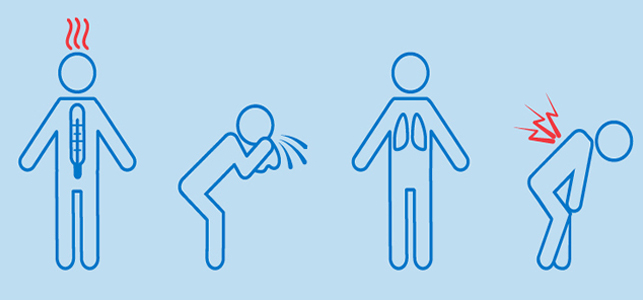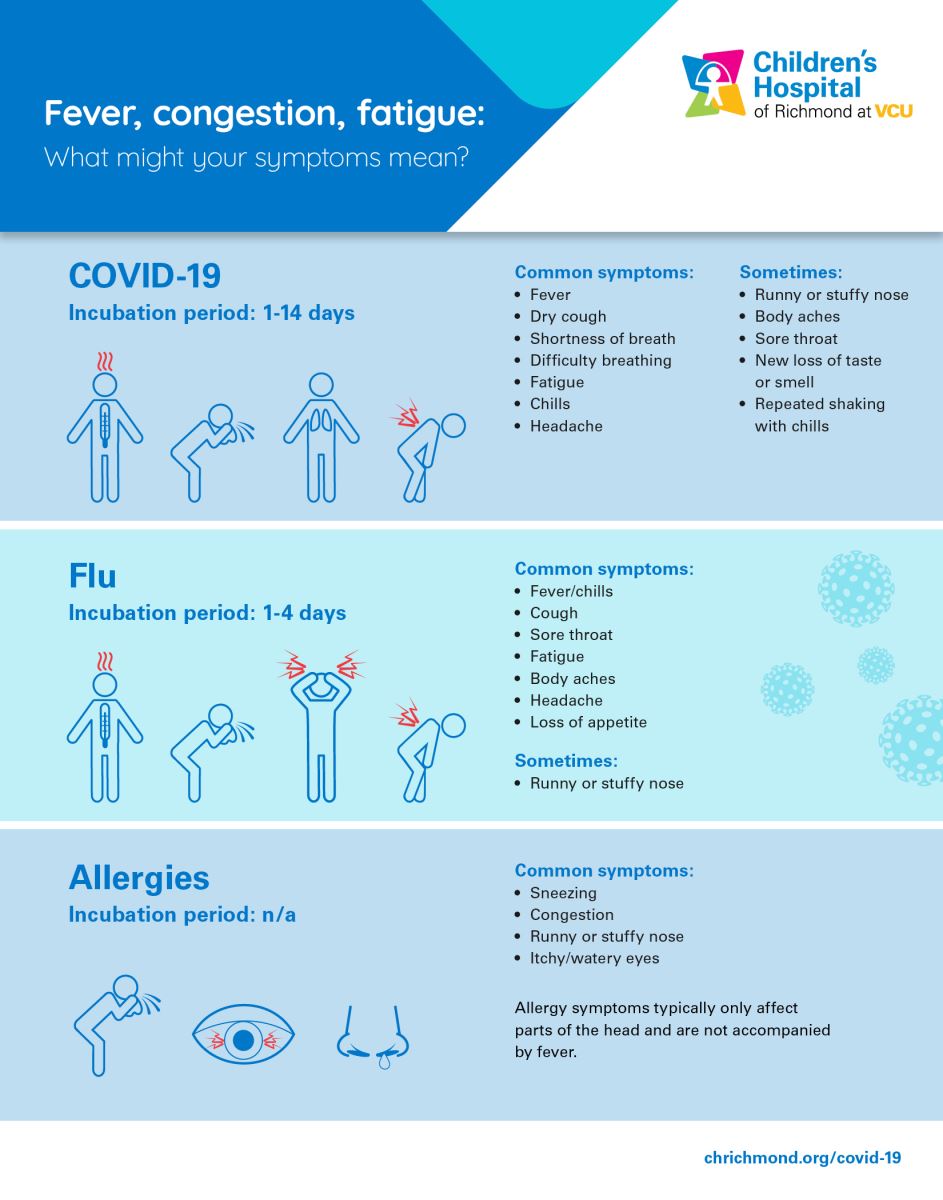
Originally posted March 25, 2020
Updated April 27, 2020
Updated January 14, 2021
Trees are budding and flowers are blooming which also means…spring allergies! At the same time, all eyes continue to be on the spread of COVID-19 and we’re still in the midst of active flu season.
COVID-19 vs Flu vs Allergies: Here’s some help decoding the symptoms you and your kids might be experiencing.
As with any illness, exact symptoms can vary from person to person, so it’s important to call your pediatrician or primary care doctor if you have specific concerns or your symptoms seem to be getting worse.
|
COVID-19 symptoms in kids |
Flu symptoms in kids |
Allergy symptoms in kids |
|
Incubation period: 1-14 days |
Incubation period: 1-4 days |
Incubation period: n/a |
|
Common symptoms: |
Common symptoms: Sometimes: |
Common symptoms: Allergy symptoms typically only affect parts of the head are not accompanied by fever.
|
In severe cases, both COVID-19 and the flu can result in pneumonia.
And, remember, with both flu and COVID-19 you can share germs before you start to experience symptoms. Flu usually comes on suddenly (1-4 days after exposure), while COVID-19 symptoms may start to appear anywhere from 1-14 days after exposure – or perhaps even more. This is why infection prevention measures – including social distancing, hand hygiene, regular cleaning of high-touch surfaces and cough/sneeze etiquette – continue to be imperative.
If you think you or your child may have COVID-19:
Call your pediatrician or primary care doctor. They will discuss your symptoms and ask further questions to help determine the next best course of action. It is important to make this call before going to the doctor’s office or emergency room so appropriate measures can be taken to keep you, your family and other community members safe.
If your symptoms are severe, call 911.

